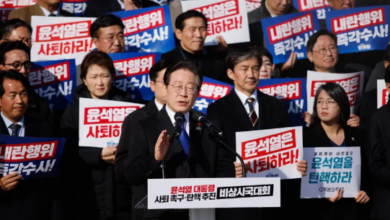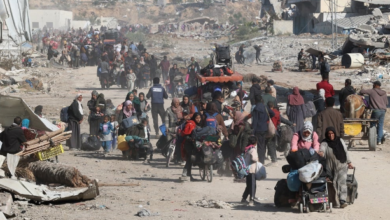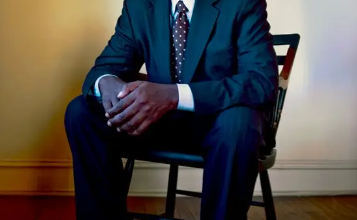Mexican congress approves keeping military in police work

MEXICO CITY — Mexico’s Congress has approved a constitutional reform that allows the armed forces to continue performing domestic law enforcement duties through 2028.
Putting soldiers on the streets to fight crime was long viewed as a stopgap measure to fight drug gang violence, and legislators had previously said civilian police should take over those duties by 2024.
But President Andrés Manuel López Obrador supports relying on the military indefinitely because he views the armed forces as more honest. The president has given the military more responsibilities than any Mexican leader in recent memory.
The reform backed by López Obrador passed the lower house late Wednesday, and must still be approved by a majority of Mexico’s 32 state legislatures.
Most experts agree that Mexico needs better-paid, trained and equipped civilian police. The army and marines were called in to aid local police forces in 2006 in fighting the country’s well-armed drug cartels. Mexico’s state and municipal police are often corrupt, poorly trained and unprofessional.
But López Obrador has relied almost exclusively on the military for law enforcement. He eliminated the civilian federal police and created the National Guard, which he now wants to hand over completely to the Defense Department.
López Obrador has relied on the armed forces for everything from building infrastructure projects to running airports and trains.
The reform extending the military mandate also promises to restore some funding to improve state and local police forces, which López Obrador cut soon after he took office in December 2018.
However, new measure — which was already approved by the Senate — does not specify how much funding will be provided to improve civilian police other than saying it cannot be less than the annual increase in funding given to the military and National Guard.
In fact, under a bill passed this week by the lower house, much of that funding would come from the government confiscating domestic bank accounts if they have laid untouched for six years or more.
But on Thursday, López Obrador said he opposed giving even that money to police, saying “it should be for disabled people, the elderly, health care.”
Starved for money, many local police forces are in a precarious state, with ill-paid cops working 24-hour shifts and having to buy their own equipment or uniforms.
“We have seen in the south, southeast of Mexico a lot of them don’t even wear uniforms; they wear a white T-shirt and boots they have to buy themselves,” said Magda Ramírez, a researcher at the civic group Mexico Evalua.
“There isn’t funding even to buy indispensable things like bulletproof vests or equipment,” she noted. Even in better-funded police departments — and there are some, especially in northern Mexico — police officers often must fix their own patrol vehicles.
“Okay, maybe you have a uniform and a bulletproof vest, but you are fixing your own patrol car. You’re a policeman, not a mechanic,” Ramírez said.
Critics note the military is not trained for police work and does little investigation. The armed forces have been accused of human rights violations while performing law enforcement duties.
But polls have found most Mexicans trust the military more than local police and want the army and navy to continue in law enforcement tasks. That is not surprising, given the poor state of most of the police forces they have seen; but most Mexicans have never been given the choice between good, efficient police and soldiers.
The problems with law enforcement in Mexico are unlikely to be solved by the army or the militarized National Guard, said security expert Alejandro Hope.
“Crimes aren’t reported. When they are reported, they aren’t investigated. When they are investigated, they aren’t prosecuted properly,” said Hope, noting that none of that will be solved by “a military force that carries out patrols, but doesn’t investigate.”
For example, the National Guard has about 118,000 officers and the Mexican army and navy have about 140,000 deployable troops. “There are 400,000 local police: That is where the efforts should be concentrated,” Hope said.
Source link





